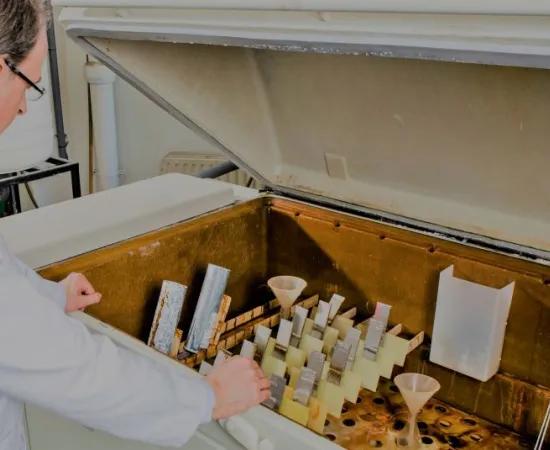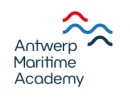
Corrosion & Insulation Practice Laboratory
The main objective of the Corrosion & Insulation Practice Lab is to assist and facilitate the development, testing and introduction of innovations in corrosion management. To this end, we are now developing new physical test infrastructure for corrosion management. The new unit will be added to the existing infrastructure. In addition, the Practice Lab offers the perfect environment to provide substantiated and practice-oriented training courses for students, technicians and staff, in order to better assess the risks of corrosion in the future. This should result in more correct handling of corrosion and corrosion prevention.
Context
The Flanders-Netherlands border region contains one of the largest clusters of process industry in the world. However, many installations are relatively old at 40 to 50 years, so corrosion control has a high priority. In order to maintain the competitive position of the process industry, it is crucial that installations can continue to operate optimally, trouble-free, safely and with minimal environmental impact. Rolling out innovations in corrosion management plays a crucial role in this.
Objective
The aim of the practice lab is to develop and provide physical test infrastructure for research and development on the prevention, detection and repair of corrosion. Possible use cases include corrosion under insulation (CUI), corrosion of steel infrastructure, maritime structures, process equipment, etc.
Approach
Project partner Scalda set up a practice room (both indoors and outdoors) where specific corrosive conditions and environments can be simulated and where possible corrosion is accelerated. Therefore, realistic test environments can be created on a larger scale. In order to respond flexibly to the needs of the industry, infrastructure will be provided to create a wide range of ‘preconditions’ for corrosion.
This includes, for example:
- The provision of water with different compositions, conductivity, temperatures, etc.
- The provision of air with different humidity rates, temperatures and possibly corrosive elements (salt, or certain concentrations of gases).
- Enabling wet/dry cycles, etc.
Within these preconditions, company-specific cases and set-ups can be set up (piping with/without insulation, various coatings, simulation of cooling water circuits, cleaning of food processing machines, etc.).
In addition, the Antwerp Maritime Academy will develop a floating pontoon in the port of Oostende, with various test options, both in the water and in the ‘splash zone’. Both static and dynamic (moving in the water) tests will be possible.
In order to interpret and substantiate the results of these very practice-oriented tests, a strong knowledge of the corrosion phenomena that occur is required. Sirris will develop a mobile unit which can be used for on-site measurements and further develop and demonstrate the possibilities of corrosion monitoring. In addition, the existing corrosion testing lab will be further developed to conduct supporting research on an academic basis and to link the results of the field tests to generally accepted and certified test procedures.
In parallel, a basic curriculum for corrosion and insulation technicians is being developed at higher and intermediate levels. At the end of the project, the infrastructure will continue to be an integral part of the participating educational and knowledge institutions and the network of companies will continue to take steps together to tackle the corrosion problem.
Target group
The Practice Lab focuses on supporting all industries where corrosion has a significant impact. Both owners of infrastructure, as well as suppliers and installers of corrosion management and prevention solutions can make use of the Practice Lab. In addition, the lab is also open to research and training for both industry and knowledge institutes.
Project Leader
Knowledge and Innovation Centre Maintenance Process Industry (Ki<|MPi)








